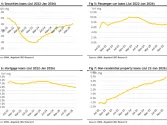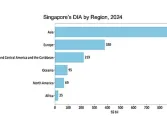
Asia Region Funds Passport inked to reduce regulatory inefficiencies
Pilot test to be launched in 2016.
On 20 September 2013 the Finance Ministers of Singapore, Australia, Korea and New Zealand signed a Statement of Intent on the establishment of the Asia Region Funds Passport.
Colin Ng & Partners said that once implemented, the Passport would facilitate the ability of eligible collective investment schemes in Passport member economies to be offered in other Passport member economies in accordance with the Passport arrangements.
This will provide investors in the region access to a broader range of quality investment products and also strengthen the region's fund management capability. The signatories also endorsed the Framework Document which sets out the initial guiding principles and basic arrangements for the Passport.
The signatory nations will now have public consultations within their economies on the detailed rules which would be necessary to implement the principles and basic arrangements set forth in the Framework Document.
The Framework Document states that to ensure that the benefits of the Passport accrue to Passport member economies, the Passport will be limited to collective investment schemes authorised and constituted in Passport member countries.
This means that to be eligible to offer a collective investment scheme under the Passport, the collective investment scheme must be constituted and authorised, approved, registered or licensed in a Passport member country and have met the regulatory requirements to offer the interest in the collective investment schemes to the public.
The fund manager must be authorised, approved, registered or licensed and have its principal place of business in that Passport member country.
It is expected that the host economy laws and regulations will apply where they relate to the direct interaction between the investor and the Passport fund.
For example, the host economy laws and regulations will apply in the distribution of Passport funds to investors, the disclosures that Passport funds are required to provide investors, the manner in which complaints by investors are dealt with and other marketing or communications directed at investors.
The home economy laws and regulations will apply to the licensing of the fund manager, authorisation and operation of the collective investment scheme, general duties of fund managers and its directors and officers, outsourcing and service provider requirements, risk management requirements and meetings of Passport fund members.
Colin Ng & Partners added that there will also be special Passport rules dealing with the streamlined authorisation process, advanced qualifications and experience, delegation, custody of assets, valuation, short selling, use of derivatives, redemption and suspension etc.
The parties are working towards implementation of the Passport by 2016. The Passport will be established initially with a limited number of Passport member economies which form the pilot group for the initiative and other economies will be added in future.
(This article was first published by Colin Ng & Partners)















